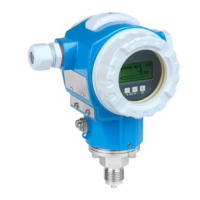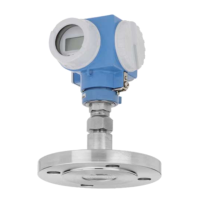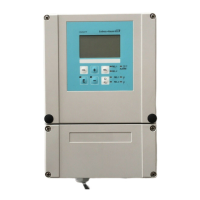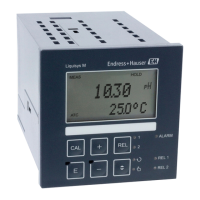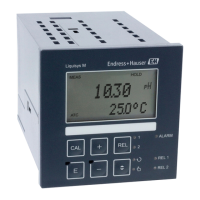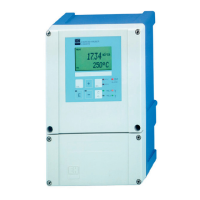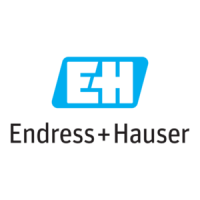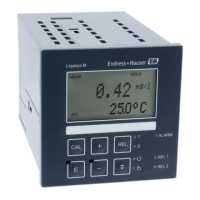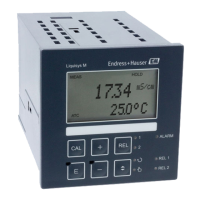Cerabar M, Deltabar M, Deltapilot M Commissioning with the FF configuration program
Endress+Hauser 153
Calibration without reference pressure – dry calibration
Example:
In this example, the volume in a tank should be measured in liters. The maximum volume of
1000 liters corresponds to a level of 4.5 m. The minimum volume of 0 liters corresponds to
a level of 0.5 m since the device is mounted below the level lower-range value. The density
of the medium is 1 g/cm
3
.
Prerequisite:
• The measured variable is in direct proportion to the pressure.
• This is a theoretical calibration i.e. the height and volume values for the lower and upper
calibration point must be known.
Note Dependencies when setting parameters!
‣ The values entered for Empty calibration/LOW_LEVEL_EASY and Full calib./
HIGH_LEVEL_EASY must be at least 1 % apart for the "Level easy pressure" level mode.
The value will be rejected, and a warning message displayed, if the values are too close
together. Further limit values are not checked; i.e. the values entered must be
appropriate for the sensor and the measuring task so that the measuring device can
measure correctly.
‣ Due to the orientation of the device, there may be a shift in the measured value, i.e. when
the container is empty, the Primary Value/PRIMARY_VALUE parameter does not display
zero.
For information on how to perform position adjustment, see also ä 144,
"Pos. zero adjust/PRESSURE_1_ACCEPT_ZERO_INSTALL".
Description
1 Deltabar M: Before configuring the device for your
application, the pressure piping must be cleaned and
filled with medium.
A0031027
Fig. 46: Calibration without reference pressure – dry
calibration
A See Table, step 8.
B See Table, steps 10 and 11.
C See Table, steps 12 and 13.
2 Open the Pressure Transducer Block and set the
block mode to OOS.
3 Select the measuring mode if necessary:
Select the "Level height" option via the Primary Value
Type/PRIMARY_VALUE_TYPE parameter. Or:
4 Select the "Level" measuring mode via the Measuring
mode/OPERATING_MODE parameter.
Select the "In height" option via the Level selection/
LEVEL_ADJUSTMENT parameter.
5 By means of the Unit before Lin./OUT_UNIT_EASY
parameter, select a volume unit, here "l" for example.
6 Select a height unit by means of the Height unit/
HEIGHT_UNIT_EASY parameter, here "m" for
example.
7 Select the "Dry" option via the Calibration mode/
LEVEL_ADJUST_MODE_EASY parameter
8 By means of the Adjust density/
LEVEL_ADJUST_DENSITY_EASY parameter, enter a
density, here "1" "g/cm
3
" for example.
9 By means of the Empty calibration/
LOW_LEVEL_EASY parameter, enter a volume, here
0 l for example.
10 By means of the Empty height/
LEVEL_OFFSET_EASY parameter, enter a height,
here 0.5 m for example.
11 By means of the Full calib./HIGH_LEVEL_EASY
parameter, enter a volume, here 1000 l for example.
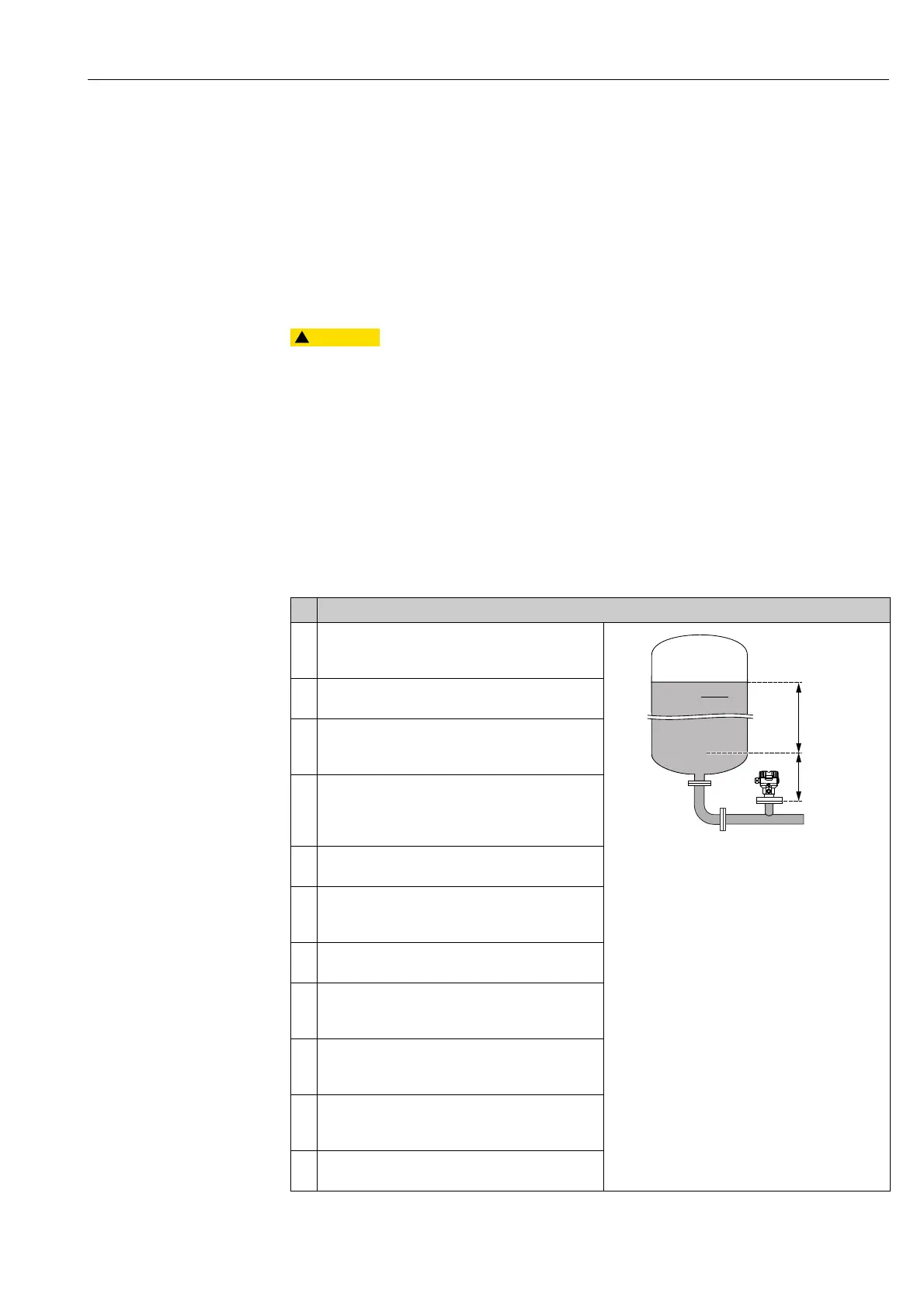